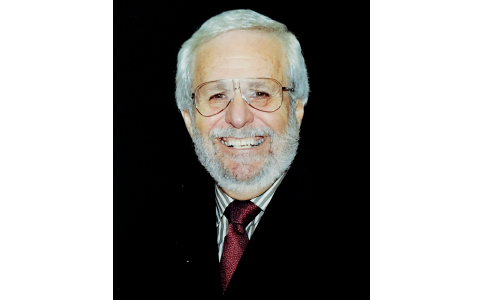Insight: Fragile hotel industry needs involvement, Blumberg says
Advertisement

Growth in hotel developments and added rooms, triggered by the City of Miami Beach putting bed tax money into construction of the Loews Hotel in the late ’90s, made Miami-Dade third in the nation in hotels. Now, with about 11 hotels and 2,220 rooms projected to open between March and December, retired founder of the Greater Miami and the Beaches Hotel Association Stuart Blumberg said this growth in the industry has been phenomenal, but without many improvements in recent years.
The Loews in 1998, the first hotel built in Miami Beach in 30 years, triggered the growth that the hotel industry has seen in Miami, said Mr.
Blumberg. But recently, “the product, the large rooms, the technology, but overall if you’re looking for the word improvement, it doesn’t really apply,” he said. The industry’s lack of involvement in the community and legislative work to make the hotel business better has disappointed him, he said.
Mr. Blumberg, founder of the Academy of Travel and Tourism in 1987 for Miami-Dade high school students, said participation in the industry is not what it used to be. As the City of Miami Beach seeks to diversify its economy, which is reliant on tourism, Mr. Blumberg said diversification should not weaken the area’s number one industry.
“The language that they use is that we are too reliant on tourism, and we need to wean ourselves away from being dependent on it,” he said. “That, to me, is very disturbing. There’s no reaction from the organizations that should be reacting over the years, and there’s always an attitude of ‘tourism will always survive and be there no matter what.’ And yet, a hurricane, an economic crash down in 2008, 2009, a recent pandemic crisis… So, we’re dealing with an industry that is a subject to some major changes.”
He was also chairman of the Visitor Industry Council – now the Black Hospitality Initiative of Greater Miami — created for young African American men and women to provide them education and jobs in the field. And during his years at the GMBHA, he partnered with Best Buddies, an organization that helps intellectually impaired young people, and created 15 to 20 jobs for them in the industry. “When I retired, my association stopped the program,” he said. “The industry is concerned, rightly so, in filling rooms and making money, but I think they’ve ignored their involvement as a community partner, and that’s unfortunate.”
“The industry needs to be a part of the community, not just a provider of tax revenue,” he added. “There are programs that are out there that need to be reinforced, and hopefully they understand that we have to train the young people, make sure that they stay in the community and work in our industry.”
The quality of life has changed, and it’s tied to transportation, he said. “Greater Miami and downtown are tremendous, active communities with not only hotels but a performing arts center, two museums, an arena, and constant construction. But it has choked transportation.”
A transit link between downtown and the beach has been talked about since 1984, he said. “I’m not sure that if that would ever be done in my lifetime; Miami Beach is not totally in favor of it, and the funding [needed] has doubled.”
For four years Mr. Blumberg has been involved with the development of the Underline — “a wonderful venue that’s going to be going 10 miles under the Metrorail from Dadeland to Brickell,” he said. “That’s an improvement in quality of life, based on the vision of [Friends of the Underline’s] Meg Daly, that’s unique and done because someone had a vision and created a public-private partnership.”
But those projects are rare, he said, and the tourism and hotel business are being taken for granted. “Bed taxes provide a lot of good quality-of-life avenues,” he said. “We find ourselves as an industry that provides bed tax revenue and at the same time gets criticized for bringing more people.”
One of the greatest lessons from the Covid-19 pandemic, he said, is that the industry is fragile. “We’re an industry that can come to a screeching halt on situations that we don’t have any control over.”
Mr. Blumberg created the GMBHA in 1991 bringing together Miami and Miami Beach and making them a powerful voice, not only in the community but statewide, with a great amount of legislation passed during that time, including the Florida Clean Indoor Air Act in 1985, which allowed smoker visitors to smoke outside of closed premises.
Mr. Blumberg has returned to the Tourism Development Council, after a 17-year career, for a subcommittee regarding cultural grants, which has had two meetings to date. “It gives me the opportunity to look at potential funding for small groups in the community that need help.”
Additionally, he is re-involved in the restoration of the Miami Marine Stadium, which was deemed unsafe since Hurricane Andrew in 1992 and remained vacant since then. “That is the last thing in my bucket list, and then maybe I’ll really retire,” he said; “but I’m really going to try to move it forward, so it becomes an active facility, the only one of its kind in the country.”
For now, he said, the leadership should be by the younger generation, but he feels there has been a disconnect between the younger generation in this community in the cultivation of leaders for the tourism and hotel industries.
“I was there at the right time and at the right place when the industry needed to have leadership. The organization I founded is a different organization today. It was not there to sell rooms; we were not there to promote. We were there to make thing better for the industry through legislation and quality of life.”


